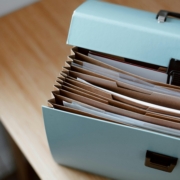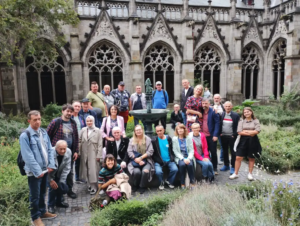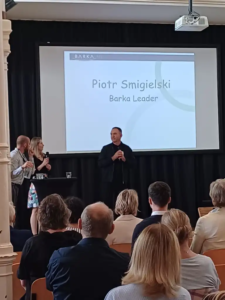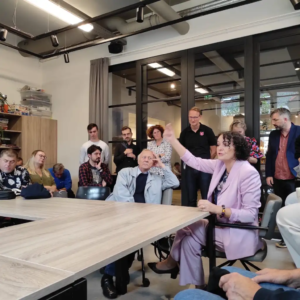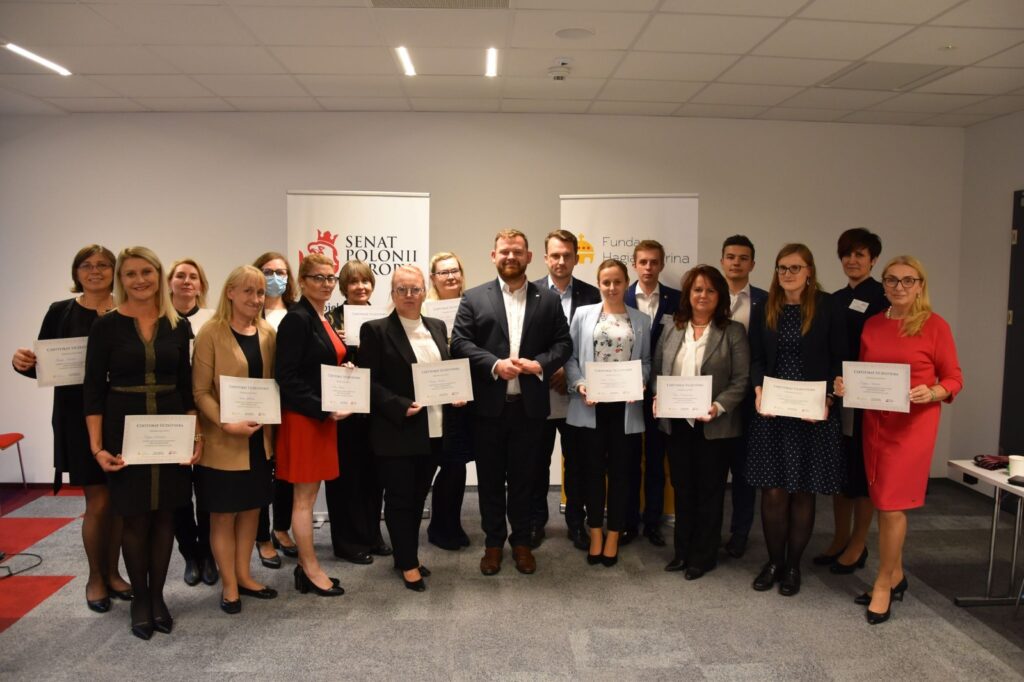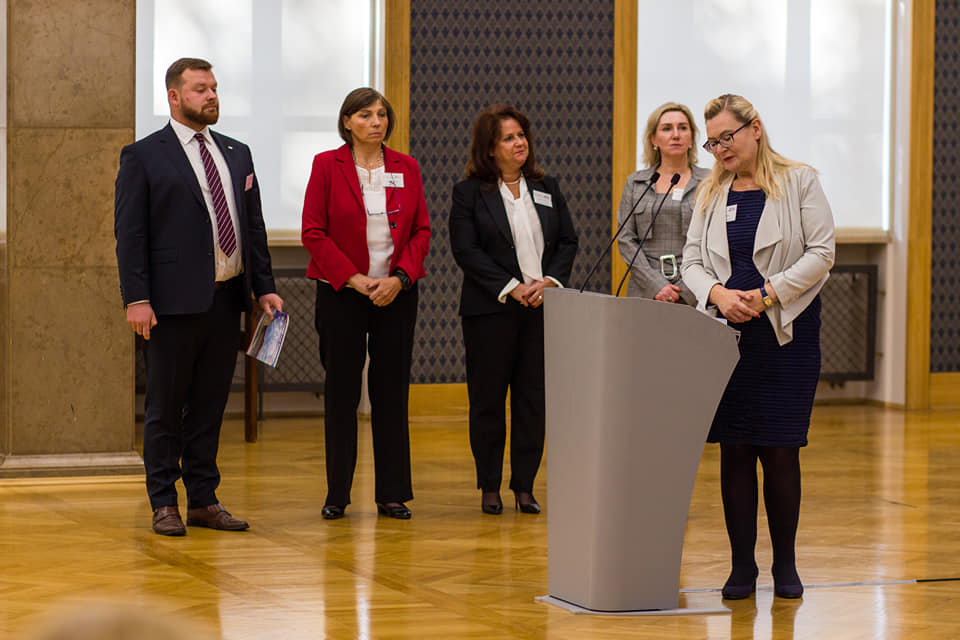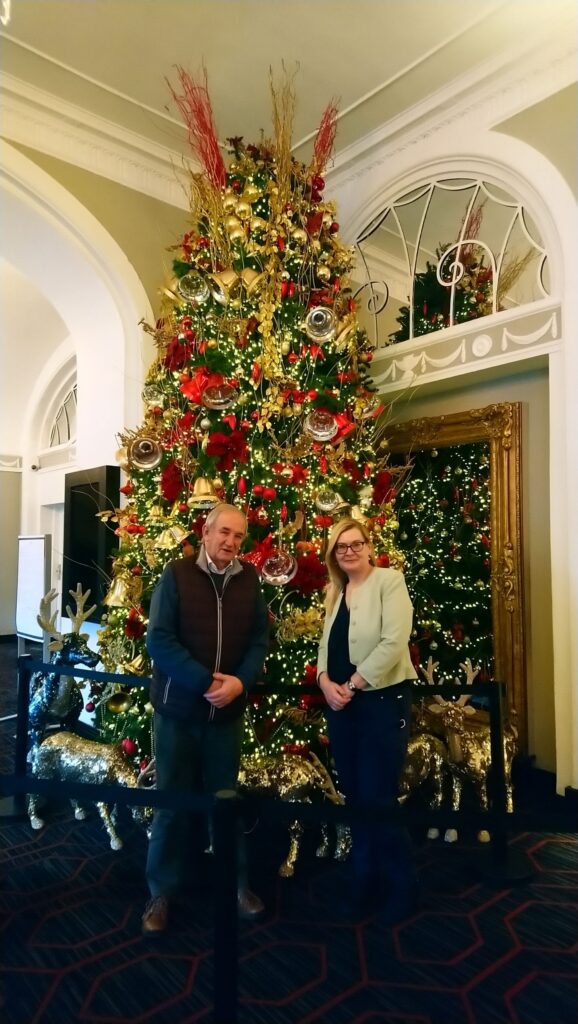This report presents data covering the year 2021, providing the insight into the impact of the Covid-19 ‘lockdown’ period on homelessness.
The mission of Barka IE is to provide severely excluded Eastern European migrants with the opportunity for reconnection and social reintegration. We can support individuals within Barka Network projects in Poland, help them return to their families, or support them in addressing their addictions and going into rehab.
In our migrants’ support projects, we work in teams of two people: a leader and an assistant. A leader is a person who has personal experience with homelessness and addiction, that is combated and rehabilitated within the Barka Network educational and community programs. The assistant is a person who knows a foreign language, has a formal education (e.g a degree in social work, psychology), and provides support to the leader. This method of work proved to be very effective in London, Dublin, Hamburg, and Utrecht.
|
SUPPORTING EASTERN EUROPEAN MIGRANTS IN DUBLIN
|
BARKA core objectives are:
1. Support to homeless and rough sleeping Central and Eastern European nationals towards reconnection to Home Countries
2. Assistance with Accessing Emergency Accommodation in Dublin when required
3. Assistance with Accessing rehabilitation and therapy, vocal training and a job in the home country.
-
Fostering Social and Vocational Integration – educational and community programs, creating workplaces, and accessible housing program (BARKA NETWORK in Central and Eastern Europe).
-
Key Working and Case Management; Assistance in Social service institutions and public offices, Language and Translation Service in Polish, English, and Russian.
-
BARKA’S cooperation with Eastern European Consulates and Embassies in Dublin results in arranging passport documents for beneficiaries in a relatively short period of time.
FORMS OF SUPPORT:
-
material assistance: 15 persons
-
financial assistance 131 persons
-
reconnection support 131 persons
-
social care/psychological/health assistance 453 persons
-
other: 12 persons
2021
From January until December of 2021 there were
131 people reconnected:
56 men
43 children
32 women
NATIONALITY
-
|
Country of origin
|
Number of reconnections
|
|
Romania
|
92 (70%)
|
|
Poland
|
13 (10%)
|
|
Lithuania
|
11 (8%)
|
|
Hungary
|
7 (5,5%)
|
|
Latvia
|
6 (4,5%)
|
|
Czech Republic
|
1 (1%)
|
|
Netherlands
|
1 (1%)
|
|
Total
|
131
|
1 Q 2021
From January until March of 2021 there were
56 people reconnected:
21 men
13 women
22 children
NATIONALITY
-
|
Country of origin
|
Number of reconnections
|
|
Romania
|
51
|
|
Lithuania
|
2
|
|
Poland
|
2
|
|
Netherlands
|
1
|
|
Total
|
56
|
2 Q 2021
From April until June of 2021 there were
18 people reconnected:
11 men
5 women
2 children
NATIONALITY
-
|
Country of origin
|
Number of reconnections
|
|
Romania
|
7
|
|
Poland
|
7
|
|
Latvia
|
3
|
|
Hungary
|
1
|
|
Total
|
18
|
3 Q 2021
From July until September of 2021 there were
33 people reconnected:
8 men
8 women
17 children
NATIONALITY
-
|
Country of origin
|
Number of reconnections
|
|
Romania
|
25
|
|
Poland
|
4
|
|
Lithuania
|
2
|
|
Latvia
|
1
|
|
Hungary
|
1
|
|
Total
|
33
|
4 Q 2022
From October until December of 2021 there were
24 people reconnected:
16 men
6 women
2 children
NATIONALITY
-
|
Country of origin
|
Number of reconnections
|
|
Romania
|
9
|
|
Poland
|
7
|
|
Hungary
|
5
|
|
Latvia
|
2
|
|
Czech Republic
|
1
|
|
Total
|
24
|
2. RECONNECTION DESTINATION
2021
|
Reconnection destination
|
Number of reconnections
|
|
Family/friends in the country of origin
|
131
|
|
To BARKA/other organizations in other CEE country
|
2
|
1 Q 2021
|
Reconnection denstination
|
Number of reconnections
|
|
Family/friends in the country of origin
|
56
|
|
To BARKA/other organizations in other CEE country
|
0
|
2 Q 2021
|
Reconnection destination
|
Number of reconnections
|
|
Family/friends in the country of origin
|
16
|
|
To BARKA/other organizations in other CEE country
|
2
|
3 Q 2021
|
Reconnection destination
|
Number of reconnections
|
|
Family/friends in the country of origin
|
33
|
|
To BARKA/other organizations in other CEE country
|
0
|
4 Q 2021
|
Reconnection destination
|
Number of reconnections
|
|
Family/friends in the country of origin
|
24
|
|
To BARKA/other organizations in other CEE country
|
0
|
The largest effect of the pandemic was an increase in the number of individuals who have been seeking repatriation through BARKA. It has risen twice due to an ever-increasing number of homeless and particularly Romanian families who have come in contact with Barka.
Barka supported the reconnection of 131 people. In the same period of 2020, we repatriated 65 persons.
A significant percentage of our beneficiaries were seeking our support shortly after arrival – 4-6 weeks. Those people were unable to settle down in Ireland and were seeking repatriation 21 of them were families.
From January to December of 2021 we have had 1,696 contacts with 527 individuals. We have had regular contact with many people who we’ve met in previous years, and we have also had 453 newcomers.
During the year 2021, we have been contacted by many newcomers in the toughest situations. With prolonged waiting time for a PPS number, many people were unable to find a job and as a result not being able to pay their rent. We were in contact with clients using HSE “quarantined” services.
Most of our clients live in hostels, but at the same time, more and more migrants come to Ireland. Those are not interested in reconnections and we link them with social and homeless services in Dublin.
We also meet many people cheated by employers and friends. We receive many phone calls and emails from outside Dublin – mostly from Cork and Galway.
With services such as churches and coffee shops closed or only partially opened they have nowhere to go to have a shower, have a cup of tea, or charge their phone and get out of the rain and cold. In the terms of preventing homelessness, it was crucial to offer reconnection.
In the same situations were people with a long background of homelessness who have had no access to emergency accommodation or prefer to not use it.
Hospitals and prisons social workers were in contact with our team to assist clients in their care.
BARKA’S team was also in contact with a group of homeless people who do not use services such as day support centers.
|
BARKA’S RESPONSE TO COVID-19 RELATED ISSUES AMONG HOMELESS AND VULNERABLE PEOPLE
|
The Coronavirus pandemic has posed a significant challenge for BARKA’S services and people experiencing homelessness in Dublin. According to research, people who are experiencing homelessness were more vulnerable to infectious diseases causing them to have difficulties adhering to public health directives and the high prevalence among them of long-term health conditions. In Ireland, the homeless community has been the most affected population group during the COVID-19 pandemic with 65% of homeless service providers stating that the homeless community’s health and wellbeing have been highly impacted.
The BARKA team has faced facing new challenges. For example, we’ve had situations where hostel staff refused to rent rooms to our clients. Travel restrictions such as negative test results are required by airlines and border services have added new tasks to our everyday work. Thank the project supported by the Polish Embassy in Dublin we were able to provide our 13 Polish clients with accommodation immediately before the journey.
Our clients’ needs are more complex with the likes of large families, young children, victims of human trafficking and domestic violence, people with mental issues, etc. Many persons required special assistance at the airport.
We also supported 5 clients with applying for passports.
BARKA’s key activities in preventing the spread and effects of COVID-19:
– Distribution of face masks and hand sanitizers
– Organising Covid testing: 83 people
– Organising appropriate places for quarantine for those returning to their home country: 12 people
– Linking clients to homeless services, housing, medical, mental health, syringe services, and substance use treatment. Reaching out to these clients regularly to ensure they are being linked to care as necessary.
– Information and advice. Providing information about COVID-19 and other practical information to non-English speakers and those with low literacy or intellectual disabilities.
– Ensuring communication with clients about changes in homeless service policies and/or changes in necessities such as food, water, hygiene facilities, shelters, regular healthcare, and behavioral health resources.
– Reducing social isolation. We were communicating via phone, email, and personal contact with our clients, offering a comforting chat and advice.
Supporting vulnerable and complex people‘s needs, especially in the midst of a fast-changing and unpredictable crisis requires BARKA’s holistic, creative, and compassionate support more than ever.
1. NATIONALITY OF PEOPLE WE’VE MET IN 2021
-
|
NATIONALITY
|
total:
|
527
|
|
Poland
|
259
|
49.00%
|
|
Romania
|
229
|
43,5%
|
|
Lithuania
|
18
|
3,5%
|
|
Latvia
|
11
|
2,5%
|
|
Hungary
|
8
|
1,5%
|
|
Netherlands
|
1
|
0.25%
|
|
Belgium
|
1
|
0.25%
|
|
Czech Republic
|
1
|
0.25%
|
|
France
|
1
|
0.25%
|
Most of the people we’ve dealt with in the year 2021 were Polish and Romanian citizens. Almost every day we‘ve received referrals or have been contacted directly by newcomers. We observed another wave of the influx of Romanian migrants, usually large families with young children in the toughest situations, who came to Ireland completely unprepared: with no money, no place to stay, and no secured job. Many of those families seek reconnection and tickets to fly back home in 4-6 weeks after arriving in Ireland.
Most of them were provided by emergency accommodation and food. They contact Barka via hostels’ key workers, HSE officers, and other homeless persons. We are always trying to meet those families and their key workers a few times before making the decision of reconnection, to make sure they really need our support. We also ask if a family has somewhere to go in the home country. If needed we link them with the local social and family support services.
Our contact with beneficiaries is rather informal, mostly focused on building trust. Initially, we would know people by their first name, then with time the person would open up and we would learn more about their personal and professional situation.
The Barka team speaks Polish and Russian (common second languages) and it facilitates communication with beneficiaries of most foreign nationalities in Ireland. A large number of our clients seek our assistance with contacting social welfare, health care, bank, tax office, courts, etc.
Communicating in their native language also lets the beneficiaries become more open, more trusting, and more ready to share private information.
We’ve worked hard to provide information, advice, comforting conversations, and also motivation for reconnection.
At the end of September Barka’s social assistant took part in 10 days of training in Poland.
2. SITUATION OF HOMELESS/VULNERABLE PEOPLE
|
ACCOMMODATION
|
total:
|
527
|
|
Hostels/family hubs
|
245
|
46,5%
|
|
Private rented accommodation /HAP/ social housing
|
127
|
24,5%
|
|
Rough/tent/friends couch
|
89
|
16,5%
|
|
HSE Isolation centre
|
50
|
9,5%
|
|
Prison/Hospital
|
16
|
3.00%
|
|
|
|
|
In the year 2021, the majority – 46,5% – of our clients were accommodated in hostels or family hubs. A further 24,5% were renting and 16,5% slept on the streets, in parks, in car parks, under a tent in the city centre etc.
We observed that during the pandemic crisis every homeless person was offered a place in some form of a shelter.
9,5% of clients have been referred to BARKA by HSE: SafetyNet isolation centre.
Since the lock-down started we have been contacted by 4 new groups of vulnerable people:
– Those who lost their jobs and accommodation after their employers were forced to close their business
– People who came to Ireland to look for a job but fell into a bureaucratic trap. Their lack of knowledge of the Irish system as well as the English language with the combination of offices and many other places closed from the public result in problems with obtaining PPS numbers, finding jobs, registering as homeless people and finding suitable accommodation.
– People who came to Ireland to work but was cheated by employers or job agencies
– Clients with mental issues which condition worsens because of pandemics and those who left their countries because of a fear of COVID-19.
Our clients from the group above all suffered from either stress or anxiety. Most of them had to stay in inappropriate and insecure accommodations: either on a friend’s couch, in overcrowded apartments, or outside. Some of them have no one to speak to – with a minimal grasp of the English language, friends, or any familiar face.
Closure or limiting recovery services and day centres led to a lack of human contact. Our clients miss socializing with friends, having a chat over a hot meal or a cup of tea. Friends groups have been separated and accommodated in different hostels. It definitely has an impact on their mental health. In situations such as these, the presence of the BARKA team was crucial. Our work is based on creating bonds with our clients, building trust and confidentiality. During our street patrols, we offer chats, advice and comfort.
People experiencing homelessness often find it difficult to adhere to public health directives such as physical distancing, isolation and quarantine because of their addictions and social maladjustment.
3. GENDER
The majority of people we are in contact with are males.
|
GENDER
|
total:
|
154
|
| Males |
386
|
73.00%
|
| Females |
141
|
27.00%
|
|
|
|
|
4. GROUPS AT RISK OF HOMELESSNESS
The first group of homeless people we have been contacted mostly were between 35 and 55 years of age. It has been a shift from previous years when the dominating group was younger people – up to age 35.
|
AGE
|
total: |
527
|
|
Over 35
|
278
|
53.00%
|
|
Up to 35
|
182
|
34,5%
|
|
Over 55
|
67
|
12,5%
|
|
|
|
|
During the pandemic, we have observed an increased number of Eastern European citizens who have found themselves in extremely difficult situations because of the COVID-19 pandemic and restrictions.
This refers mostly to the people who have just come to Ireland. Some of them were hoping for a job, and some had their positions arranged before their arrival. Unfortunately, after the 13th of March 2020, their plans were crushed and left without any support. From our contact with these people, we understand that some had planned to stay in Ireland but the majority were desperate to go back home and we were able to help all of them with reconnections.
Some beneficiaries were still unfamiliar with their rights and entitlements or social support/social welfare systems due to language difficulties and this, combined with their other life events contribute to their homelessness.
COOPERATION WITH OTHER INSTITUTIONS AND ORGANISATIONS
We maintained facilitated cooperation with other organisations and institutions involved in the problemacy of homelessness. Regular meetings with social assistants or officials are important for the holistic view of somebody’s situation and give the possibility to share ideas or experiences.
|
Organization/institution
|
Frequency of contact
|
Type of cooperation
|
|
Dublin Simon Community
|
2-3x a month
|
Exchanging information, referrals
|
|
St Vincent de Paul
|
2x a month
|
Facilitate the communication with persons
|
|
Hospitals/Prisons
|
2x a month
|
Facilitate the communication with clients, cooperation with social assistants, reconnections
|
|
Merchants Quay Ireland
|
2x a week
|
Exchanging information, Good place to make contact with people, to have a peaceful talk; very good equipped to cover basic needs – shower, clothes, doctor; MQI refers to us clients seeking support with reconnection
|
|
Focus Ireland
|
2-3x a month
|
Exchanging information, referrals
|
|
HSE SafetyNet and other organisations isolation centres
|
2-4x a month
|
Reconnections referrals, facilitate the communication with persons, referrals to quarantines
|
|
Little Flower Dinners
|
1x a week
|
Lunchtime patrols
|
|
Cairde
|
1-3x a week
|
Reconnections, quarantines, testing referrals, translations service
|
|
CKU – Centre for Counseling and Therapy
|
1x a month
|
Referring Polish clients experiencing addictions
|
|
Capuchin Day Centre
|
2-3 times a week
|
Exchanging information, Good place to make contact with people, to have a peaceful talk; very good equipped to cover basic needs – hot food, clothes, doctor; CDC refers to us clients seeking support with reconnection
|
|
Garda/Airport Police
|
1x week
|
referring clients seeking support with reconnection
|
|
Treshhold
|
1x month
|
Referring clients in private rented accommodation at risk of homelessness, eviction
|
Joanna: “I would like to thank Dublin Barka for all their help. The Barka team are great people. Once again I would like to thank them for all their support”.
Elzbieta and Pawel: “We would like to express our sincere thanks to the Barka Foundation for their hard work. Without your support, it would be impossible to bring our dad back home. Thank you very much for your compassion and huge commitment.
Thank you very much. We can recommend your service to everyone who found themselves in a similar critical situation.”
INFO DESK: https://www.youtube.com/watch?v=CvxtfmxUsF4
THE IRISH TIMES: https://www.irishtimes.com/news/health/covid-quarantine-centre-many-are-completely-destitute-they-have-nothing-1.4405527
THE IRISH TIMES: https://www.irishtimes.com/news/ireland/irish-news/there-was-no-key-to-the-room-so-i-couldn-t-lock-the-door-and-people-were-on-drugs-1.4035462
IRISH EXAMINER: https://www.irishexaminer.com/news/arid-40054817.html
W IRLANDII: https://wirlandii.pl/2019/10/przyjechali-do-irlandii-w-poszukiwaniu-lepszej-przyszlosci/
PEPE TV: https://www.pepe-tv.eu/polacy-pomagaja-bezdomnym-w-dublinie/
TVP POLONIA https://polonia.tvp.pl/48045493/polacy-pomagaja-bezdomnym-w-dublinie
LONDYNEK.NET: https://londynek.net/czytelnia/article?jdnews_id=4558269

